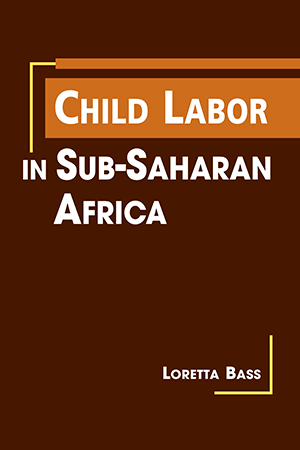
- 2004/213 pages
- A related title: Young Solders: Why They Choose to Fight by Rachel Brett and Irma Specht.
Child Labor in Sub-Saharan Africa
Hardcover: $59.95
ISBN: 978-1-58826-286-8
Ebook: $59.95
ISBN: 978-1-58826-861-7
Although both media and scholarly attention to the use of child labor has focused on Asia and Latin America, the highest incidence of the practice is found in Africa, where one in three children works. Loretta Bass presents a comprehensive, systematic study of child labor in sub-Saharan Africa.
Bass offers a window on the lives of Africa's children workers, a view informed by her analysis of the historical, economic, political, sociocultural, and legal factors framing child labor on the continent. Drawing on research from 18 countries, she discusses the political economy of child labor at the national, community, and household levels, the role of the education system, the differences between urban and rural child laborers, and the exploitation of children as soldiers, prostitutes, and slaves. Her concluding chapter confronts the benefits and costs of child labor and considers the prospects for policy aimed at creating positive social change.







